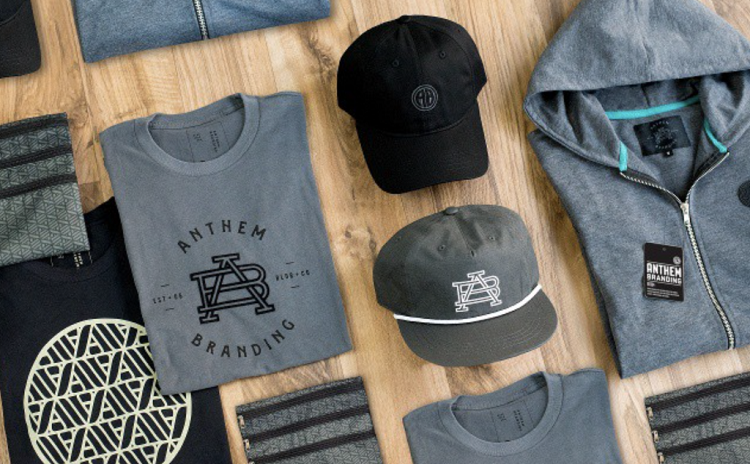In the fast-paced world of marketing, businesses are constantly seeking innovative ways to promote their brands and connect with their target audiences. One effective strategy that has stood the test of time is the use of branded merchandise. From T-shirts and mugs to tote bags and tech gadgets, promotional items not only serve as tangible reminders of a brand but also play a significant role in marketing strategy. This article explores the multifaceted benefits of branded merchandise, its impact on brand awareness, customer loyalty, and how it aligns with overall marketing goals.
Table of Contents
Enhancing Brand Awareness
One of the primary purposes of branded merchandise is to enhance brand awareness. When a company gives away promotional products, it extends its brand’s reach beyond traditional advertising methods. Items such as pens, stickers, and clothing with a company’s logo become mobile advertisements. Whenever a recipient uses or wears these items, they create a visual representation of the brand in their daily life.
1. Visibility and Recognition
Branded merchandise increases visibility. For instance, a simple logoed T-shirt worn in public can generate conversations and pique curiosity about the brand. According to a study by the Promotional Products Association International (PPAI), 79% of people can recall the branding on a promotional product they received in the last two years. This high recall rate demonstrates that branded merchandise can significantly boost brand recognition.
2. Long-Lasting Impressions
Unlike traditional advertisements, which may be forgotten shortly after viewing, branded merchandise often remains in use for an extended period. Items like reusable water bottles or tote bags can be used daily, keeping the brand top-of-mind. This longevity contributes to building a lasting impression in the minds of consumers, increasing the likelihood of future interactions with the brand.
Building Customer Loyalty
Another significant advantage of using branded merchandise in marketing strategy is its ability to foster customer loyalty. When customers receive promotional items, they often feel appreciated and valued, strengthening their emotional connection to the brand.
1. Creating a Sense of Belonging
Branded merchandise can help create a sense of community among customers. For example, companies often distribute branded items at events or trade shows, encouraging customers to show their affiliation with the brand. This sense of belonging can enhance customer loyalty, making them more likely to choose that brand over competitors in the future.
2. Rewarding Engagement
Incorporating swag into customer loyalty programs can also boost retention. Companies that use merchandise as part of their rewards system incentivize customer engagement. For example, offering exclusive merchandise to loyal customers can make them feel appreciated and encourage continued patronage. This approach aligns perfectly with the idea that “swag meaning business,” as it highlights how branded items serve a deeper purpose in nurturing relationships.
Differentiating from Competitors
In an increasingly crowded marketplace, standing out from the competition is crucial for business success. Branded merchandise can be a key differentiator that sets a brand apart from its competitors.
1. Unique Product Offerings
Companies can offer unique and creative branded items that reflect their brand values and personality. For example, a tech company might distribute innovative gadgets, while a health-focused brand might offer eco-friendly products. By aligning merchandise with brand identity, companies can create a memorable impression that resonates with their target audience.
2. Tailored Experiences
Branded merchandise allows businesses to tailor their marketing efforts to specific audiences. Understanding the preferences and needs of target customers enables companies to choose promotional items that appeal to their demographic. For instance, if a company knows its audience consists of outdoor enthusiasts, it can provide branded camping gear, reinforcing the brand’s connection to that lifestyle.
Enhancing Trade Shows and Events
Trade shows and events are prime opportunities for businesses to showcase their brand and connect with potential customers. Branded merchandise plays a vital role in maximizing these events.
1. Attracting Foot Traffic
Companies that offer attractive promotional items at their booths often see increased foot traffic. People are naturally drawn to freebies, and providing high-quality, desirable items can encourage attendees to stop by, engage with the brand, and learn more about its offerings.
2. Creating Lasting Connections
Branded merchandise serves as a conversation starter and helps create lasting connections with potential customers. When attendees receive a well-thought-out promotional item, it opens the door for discussions about the brand and its products. Moreover, after the event, recipients are likely to remember the brand when they use the item, further solidifying the connection.
Measuring the Effectiveness of Branded Merchandise
As with any marketing strategy, measuring the effectiveness of branded merchandise is essential. Businesses must assess the impact of their promotional products to determine their return on investment (ROI).
1. Tracking Engagement
Companies can track engagement by monitoring how often promotional items are used or shared. Surveys and feedback can provide insights into how recipients perceive the merchandise and whether it influenced their purchasing decisions.
2. Analyzing Sales Impact
Analyzing sales data before and after distributing branded merchandise can help businesses gauge the impact on revenue. If there is a noticeable increase in sales or customer inquiries following a promotional campaign, it suggests that the merchandise effectively contributed to brand awareness and engagement.
Conclusion
Branded merchandise is a powerful tool in a company’s marketing strategy, offering numerous benefits that extend beyond mere giveaways. From enhancing brand awareness and building customer loyalty to differentiating from competitors and maximizing event impact, the role of promotional items is multifaceted. The concept of “swag meaning business” encapsulates the idea that branded merchandise serves a strategic purpose in fostering connections with customers and reinforcing brand identity.
As businesses continue to explore innovative marketing tactics, investing in branded merchandise can yield substantial returns. By thoughtfully selecting promotional items that resonate with their target audience, companies can create lasting impressions, drive engagement, and ultimately enhance their market presence. In a world where connection and authenticity are paramount, branded merchandise remains an indispensable component of effective marketing strategy.

